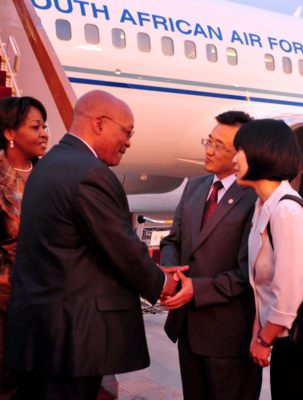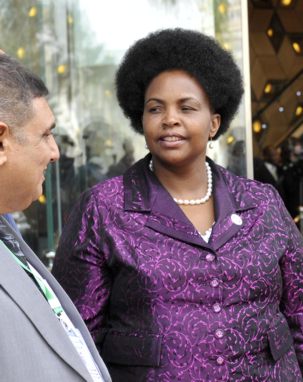|
Africa | South Africa Economy - Development | Politics SA to represent Africa at emerging markets
South Africa, which was invited to the BRIC group in December 2010 following its application in November, will be officially incorporated into BRIC at the forthcoming Heads of State Summit set for China in April. The inclusion of South Africa - the first African country to be admitted to the group - would see the acronym changing to BRICS.
Regardless of the size, South Africa stands at a unique position to influence African economic growth and investment. For example, Africa's combined current gross domestic product is similar to that of Brazil and Russia, and slightly above that of India. BRICS would aim at exploring such markets. South Africa would thus act as a "gateway" to Southern Africa and the entire African continent. This situation favours China and India, as China is South Africa's largest trading partner, and India has indicated plans to increase commercial ties with Africa. Politically, BRICS would allow emerging economies to speak with a single voice in the international arena. The inclusion of South Africa into BRICS will result in all BRICS countries being represented on the UN Security Council when South Africa takes up a two-year seat on the council this year. China and Russia are two of the five permanent members while India and Brazil are currently non-permanent members. This composition is expected to lay a strong foundation towards a review of the Security Council, which most developing countries have been calling for. Developing countries say the council continues to live in the past and treats members differently with the most powerful nations abusing the council to "bully and threaten smaller nations." This situation has threatened relations between and among countries as well as regions and continents. Africa is now looking to China for partnership to create more balance in its international ties. In response, China has increased development aid to Africa in sectors such as agriculture, manufacturing and mining with a US$ 10 billion loan set aside to fund development in Africa under FOCAC. China is expanding investments into Africa at a time when other traditional sources of Foreign Direct Investment are holding back citing the impact of the global financial crisis. Africa's relations with other countries such as Brazil, India and Russia remain relatively weak but continue to be strengthened. Africa and India plan to host a joint summit already this year to discuss cooperation in various socio-economic sectors. By staff writer © afrol News/SANF - Create an e-mail alert for Africa news - Create an e-mail alert for South Africa news - Create an e-mail alert for Economy - Development news - Create an e-mail alert for Politics news
On the Afrol News front page now
|
front page
| news
| countries
| archive
| currencies
| news alerts login
| about afrol News
| contact
| advertise
| español
©
afrol News.
Reproducing or buying afrol News' articles.
You can contact us at mail@afrol.com









